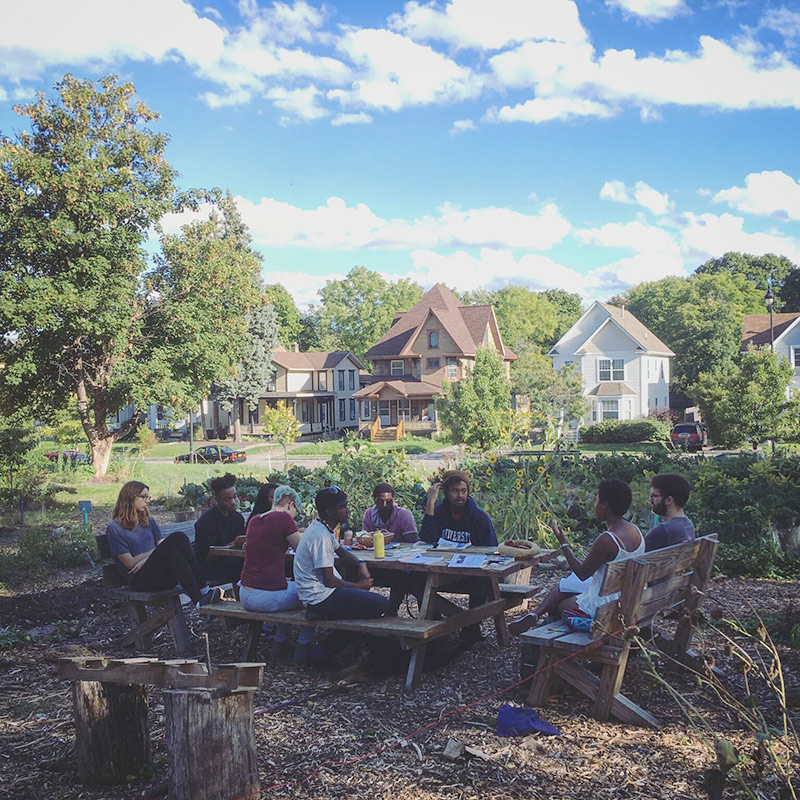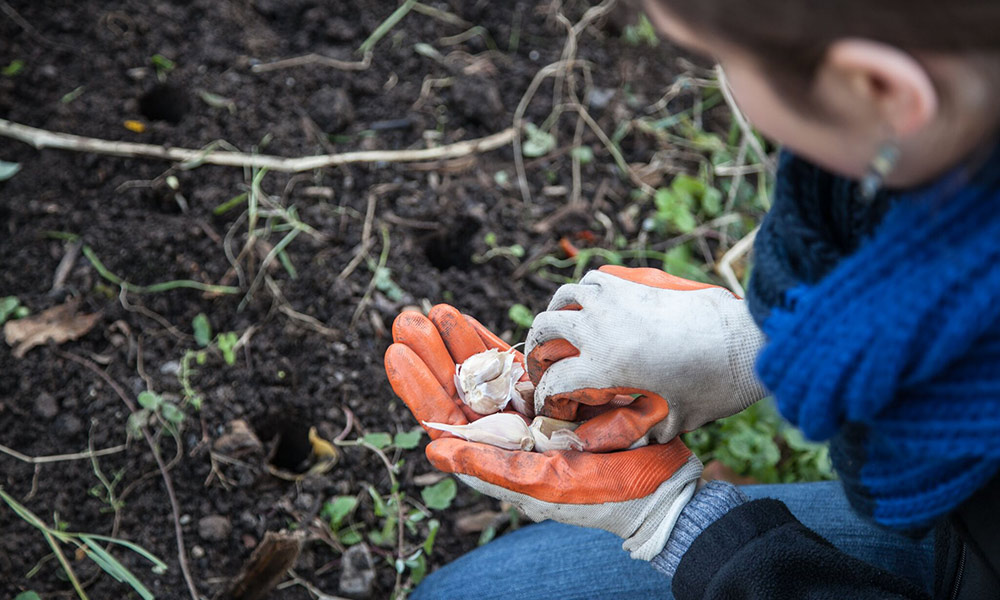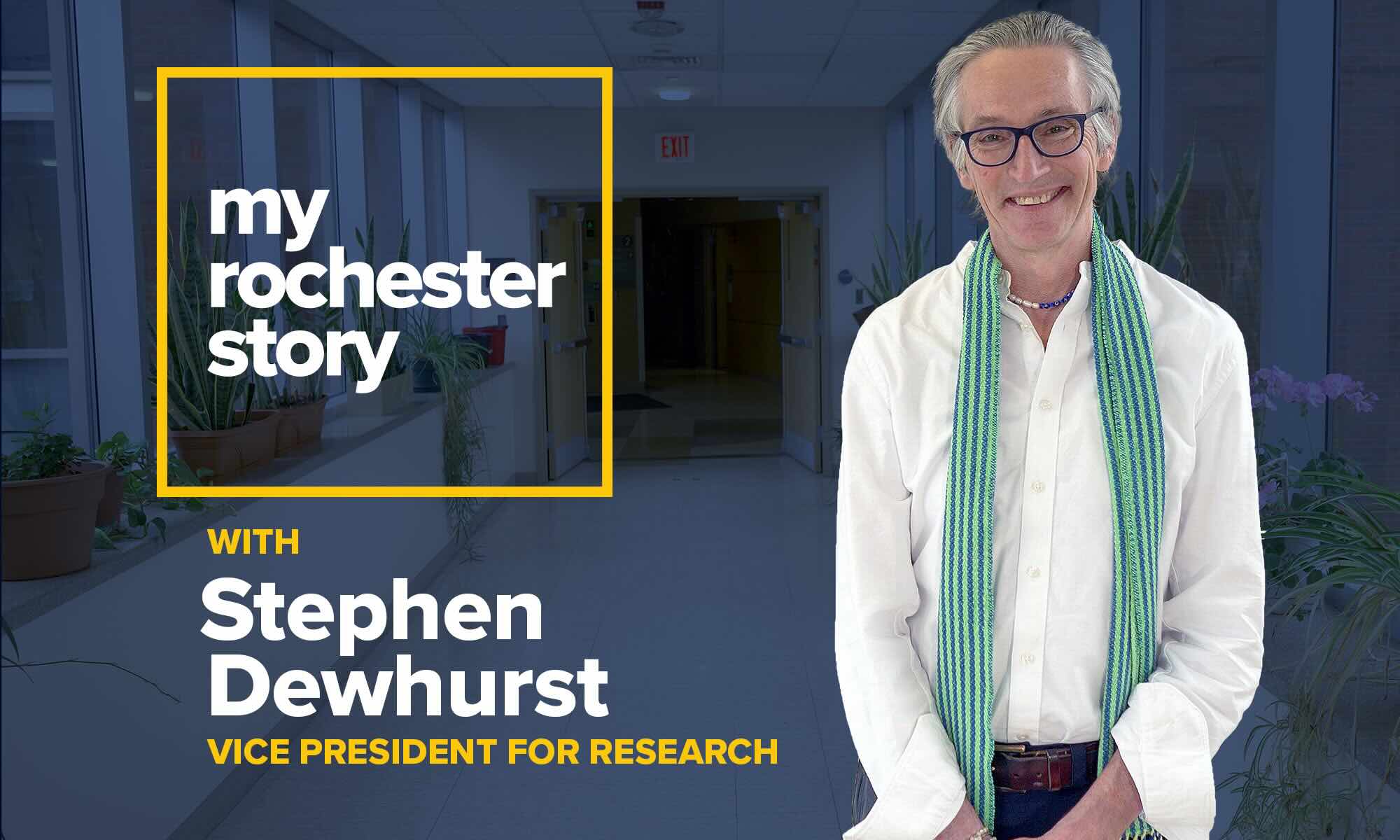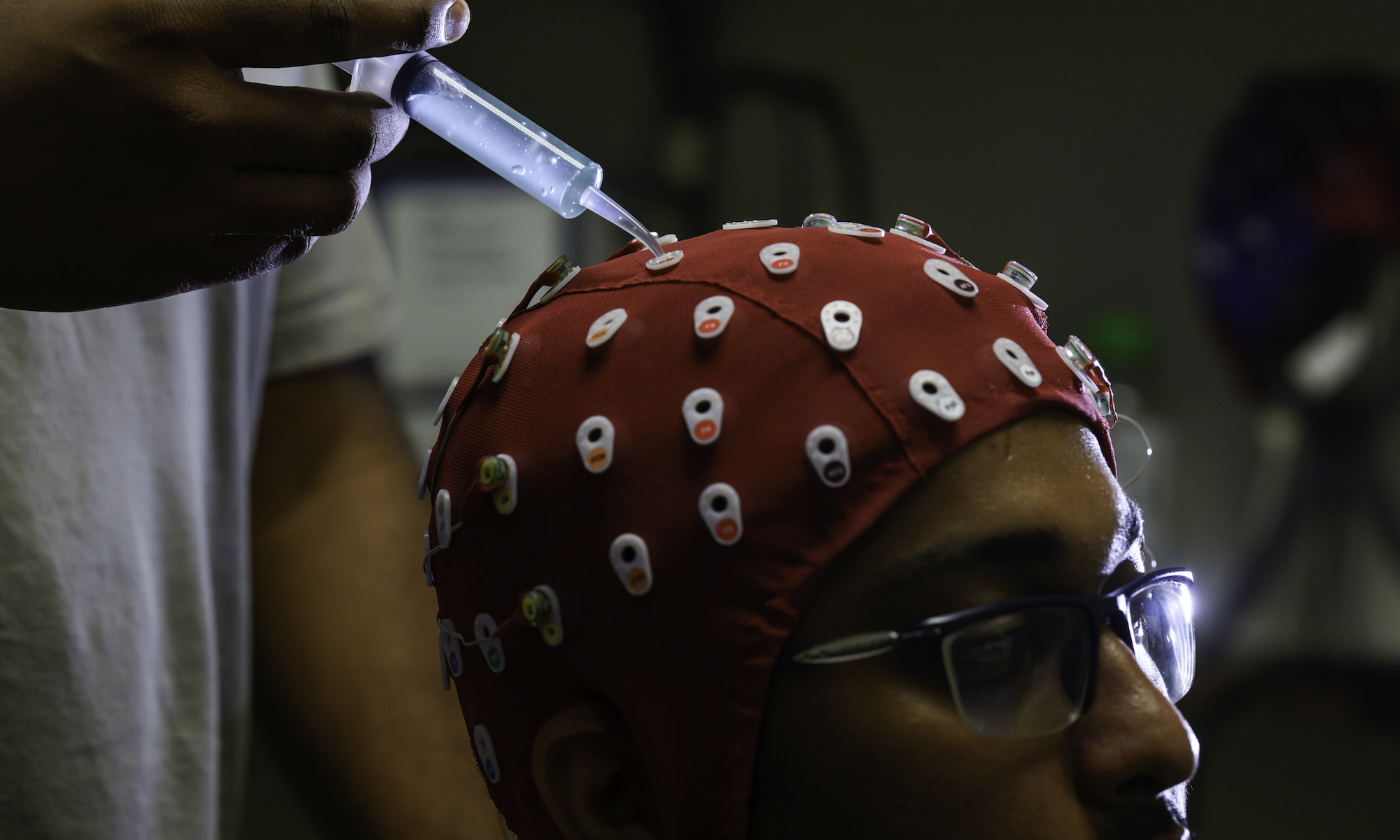Photos: Lisa Barker, Seedfolk City Farm co-founder and director.
This spring, seedlings are beginning to sprout in the new greenhouse at the M.K. Gandhi Institute for Nonviolence, where they will eventually be transplanted into the ground to supply fresh vegetables to local residents of the 19th Ward.
The greenhouse was built last fall by University of Rochester students enrolled in a new course in Food Justice & Social Practice. The class was taught by Leila Nadir, a lecturer in sustainability and environmental humanities, and Cary Peppermint, an associate professor of studio art.
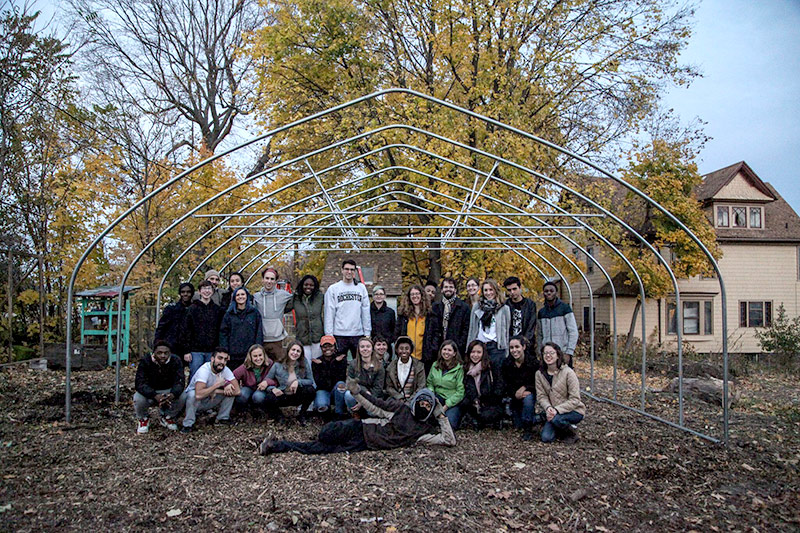
It’s part of a larger project by Nadir and Peppermint called the School of Live Culture. An example of socially engaged art—a participatory form of art in which the community itself is the medium—the school is a collaboration with the local nonprofit Seedfolk City Farm and the Gandhi Institute to hire statistically at-risk youth to teach university students about sustainability and food justice as well as how to farm, compost, and build infrastructure in an urban setting. In return, Rochester students teach the youths about socially engaged art, video-making, spoken word poetry, animal justice, and skills such as making natural food dyes from the plants in the Seedfolk garden.
The mission of the class is to establish a more sustainable urban food system, as well as explore unconventional and progressive models of dialogue, skill sharing, leadership, teaching, and youth engagement. The title, School of Live Culture, is inspired by the professors’ ongoing work with microbial fermentation and “live-culture” foods. By adopting this metaphor, Nadir and Peppermint hope to similarly infuse new cultural practices and community dialogues about food justice and racial segregation in the city of Rochester.
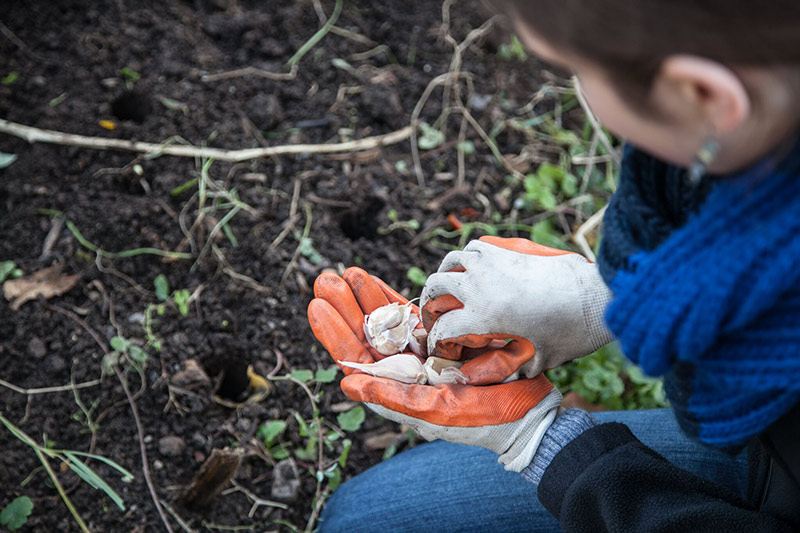
The course, piloted last fall, included seven youths, ages 15 to 20, under the direction of Seedfolk founder and director Lisa Barker, and 25 University students. Classes were held each Wednesday on the River Campus, but the two groups met every Monday at the Gandhi Institute, where duties included establishing garden beds, harvesting and planting vegetables, building and maintaining compost piles, and clearing space for a 24-foot square greenhouse.
The greenhouse, which the students constructed last November, grows food for food-insecure families in the Plymouth-Exchange neighborhood. Made of greenhouse plastic and galvanized steel pipe and managed by Seedfolk, it’s a nursery for growing seedlings for outdoor planting and for extending the growing season.
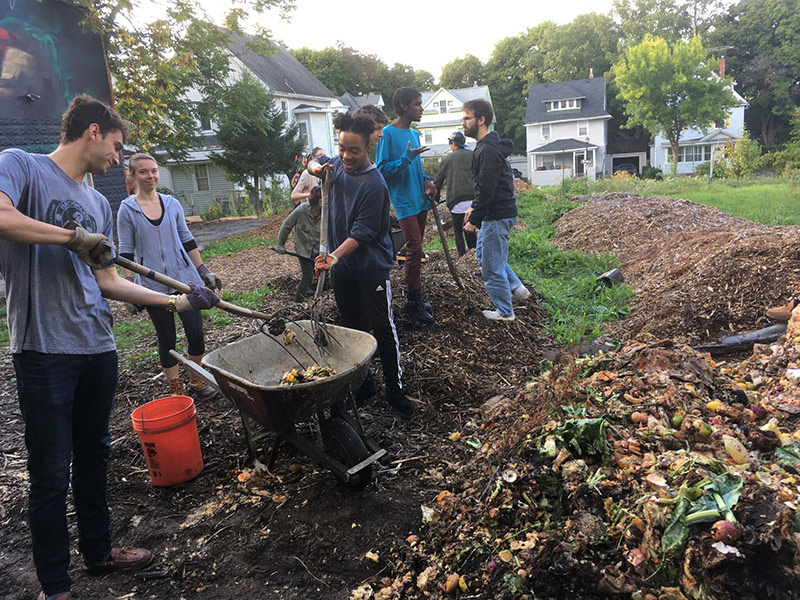
“This class is an artwork that has a larger life,” Nadir says. “Cary and I will teach it again in Rochester in 2018, and we are planning iterations of School of Live Culture in other cities.”
Noting that the pilot was “very successful,” Peppermint adds, “We have the commitment, brilliance, and enthusiasm of our University students and the Seedfolk youth farmers to thank for that.”
The collaboration was funded by the Rochester Center for Community Leadership, the M.K. Gandhi Institute, the University’s Center for Teaching and Learning, and the academic environmental humanities organization Association for the Study of Literature and Environment, of which Nadir and Peppermint are longtime members.
